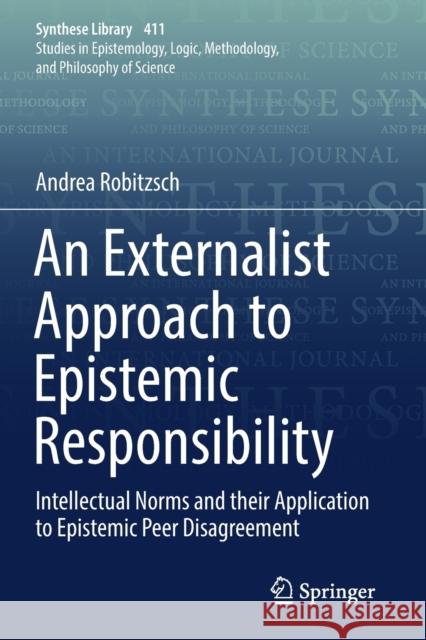An Externalist Approach to Epistemic Responsibility: Intellectual Norms and Their Application to Epistemic Peer Disagreement » książka
topmenu
An Externalist Approach to Epistemic Responsibility: Intellectual Norms and Their Application to Epistemic Peer Disagreement
ISBN-13: 9783030190798 / Angielski / Miękka / 2020 / 227 str.
An Externalist Approach to Epistemic Responsibility: Intellectual Norms and Their Application to Epistemic Peer Disagreement
ISBN-13: 9783030190798 / Angielski / Miękka / 2020 / 227 str.
cena 240,93
(netto: 229,46 VAT: 5%)
Najniższa cena z 30 dni: 231,29
(netto: 229,46 VAT: 5%)
Najniższa cena z 30 dni: 231,29
Termin realizacji zamówienia:
ok. 22 dni roboczych
Dostawa w 2026 r.
ok. 22 dni roboczych
Dostawa w 2026 r.
Darmowa dostawa!
Kategorie BISAC:
Wydawca:
Springer
Seria wydawnicza:
Język:
Angielski
ISBN-13:
9783030190798
Rok wydania:
2020
Wydanie:
2019
Numer serii:
000560157
Ilość stron:
227
Waga:
0.34 kg
Wymiary:
23.39 x 15.6 x 1.3
Oprawa:
Miękka
Wolumenów:
01
Dodatkowe informacje:
Wydanie ilustrowane











